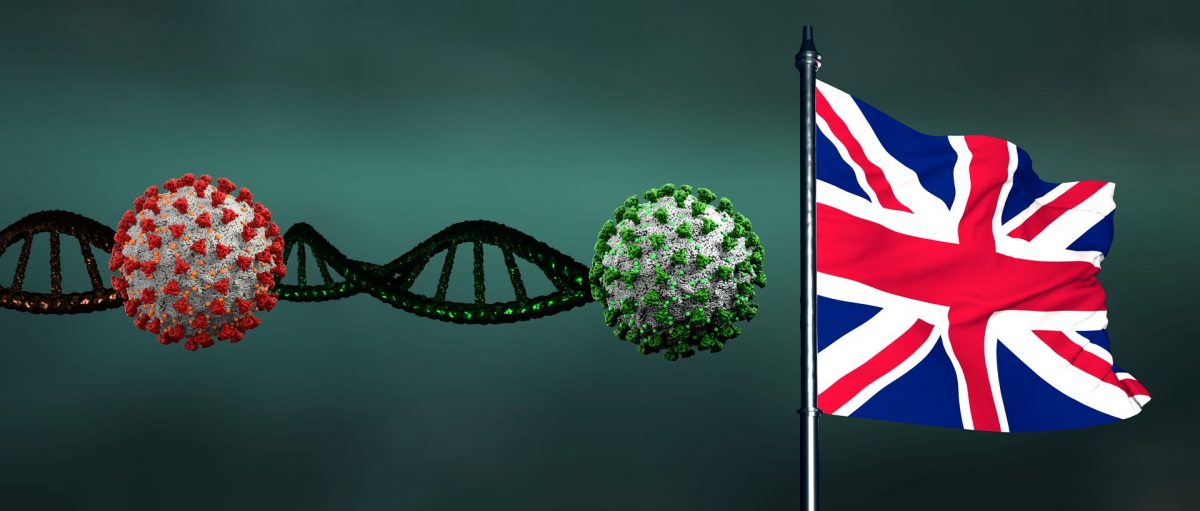(Trinidad Guardian) A repatriated national has brought the new strain of COVID-19 (Variant B117) from the United Kingdom into the country, increasing fears now over whether health officials will be able to control its spread.
In a release yesterday, the Ministry of Health confirmed the mutant strain was found in a repatriated national.
“The presence of the variant was confirmed via a gene sequencing study at the Faculty of Medical Sciences, University of the West Indies, which has been testing COVID-19 positive samples collected since September 2020,” the ministry said.
The ministry noted that all COVID-19 protocols were observed to prevent the strain’s introduction into the population.
“The patient is a returned national who travelled from the United Kingdom. As per existing quarantine protocols, the national provided a negative PCR test which was taken 72-hours prior to departure from the United Kingdom. Upon arrival in Trinidad and Tobago, the national was immediately placed in state quarantine, in a single room,” the release said.
“The patient was transferred directly to an isolation area at the Couva Hospital and Multi-training Facility once the positive COVID-19 result was confirmed.”
In response to the emergence of the new strain, the ministry had increased its quarantine protocol for travellers coming into T&T within 14 days of leaving the United Kingdom. It extended the mandatory quarantine period at a state facility or state-supervised facility upon arrival in the country from seven days to 14.
The discovery of the variant in a repatriated national would not have come as a surprise to health officials, however, as almost one month ago, on December 23, Chief Medical Officer Dr Roshan Parasram said the probability of it occurring was low but not impossible.
“Well, I suppose there’s a possibility that anything can happen. But because our borders remain closed, because we manage the repatriation through testing and quarantine, it is hopefully less likely to get in than other countries who have remained with an open border,” he said.
The COVID-19 variant emerged in September and was confirmed by UK officials on December 14. It has been responsible for heightened lockdowns in that country. There is currently no evidence that the strain is more deadly, virile or compromises vaccines. However, experts believe it is at least 50 per cent more transmissible – spreading more easily from person to person. It is one of three strains currently engaging the attention of experts globally along with the South African variant and Brazil variant.
The Centres for Disease Control and Prevention noted that while it may not be more deadly, “an increase in the number of cases will put more strain on health care resources, lead to more hospitalisations, and potentially more deaths.”
It has advised rigorous and increased compliance with public health mitigation strategies, such as vaccination, physical distancing, use of masks, hand hygiene, and that isolation and quarantine will be essential to limiting the spread.
Commenting on the situation yesterday, Professor of Veterinary Virology Dr Christopher Oura said the strain’s discovery is cause for concern.
“Trinidad and Tobago should be worried. I’m currently in the UK and this virus, this new variant, is really running a riot here. It is able to transmit more efficiently than the original variant and we’re seeing that at the moment,” he told Guardian Media.
“It’s certainly not a variant we want to get into Trinidad and Tobago (population). We want to do our level best to stop it coming in.”
The discovery also had Prime Minister Dr Keith Rowley admitting yesterday that he was concerned.
Speaking after a tour the APT James in Scarborough, Tobago, Rowley said it should be a reminder that “we are in a pandemic” which is not getting better.
Rowley said he has been worried from day one of the pandemic and begged people to adhere to the public health protocols in place.
“The difference in the new strain is that it is easier for the virus to be transmitted, so if you were skylarking with the mask, if you were skylarking with the social distancing and if you were skylarking with the partying, it is easier now to be infected,” Rowley said.

